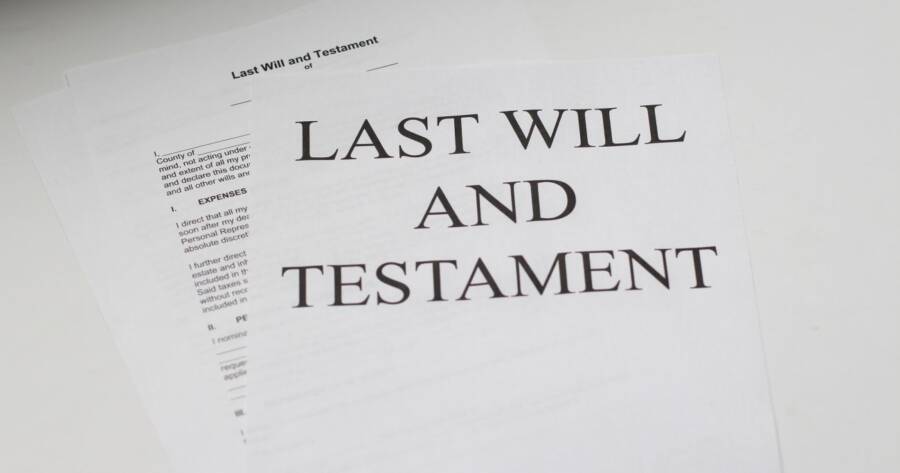One of the basic components of any well-rounded estate plan is a will, sometimes referred to as a “last will and testament.” A will is arguably the most important document that individuals should leave behind after death. Without it, a person is said to die intestate and the distribution of property and other provisions are determined under state law — not based on what the decedent wanted. A last will and testament ensures that your financial wishes are carried out after you die.
Types of Wills
The main purpose of a will is to determine how your property will be distributed when you die; this is known as a simple will. Wills can be more complex depending upon the purpose of the will beyond asset distribution. For example, a pour-over will is a type of will that leaves assets in the estate to a pre-existing trust (sometimes called a revocable living trust) that was created during the lifetime of the decedent. This type of will is generally chosen when the testator wishes to provide protection from properties and assets being seized by a beneficiary’s creditors or considered as assets during a beneficiary’s divorce.
Some wills call for the creation of a trust upon the death of the testator; this is known as a testamentary trust. Some people choose this type of will because a beneficiary is not responsible enough to handle the assets and the testator wants to have the oversight of a trust for the beneficiary’s own sake. An estate planner or competent attorney can help you decide if a simple will suffices in your situation or if you need a more complicated directive.
What Else Can a Will Do?
Beyond determining who gets what when you die, a will can also help you achieve several other goals for your estate upon your passing. Some of these include:
- Designating a guardian for minor or disabled children. If you are the surviving parent, you can minimize the level of involvement the court has in your child’s care by designating a guardian for your child in your will.
- Appointing an executor of your estate. This eliminates the need for the executor to present a bond in most states. In some jurisdictions, a named executor also eliminates the court’s need to supervise the estate’s settlement, which can reduce the time it takes to settle the estate and the associated legal and court costs.
- Naming a successor custodian for a child’s assets. If you are an acting custodian for a minor under the Uniform Gift to Minors Act or Uniform Transfers to Minors act, designating a successor in your place avoids asking the court to do so, thus reducing legal costs and time spent in court.
What Makes a Will Legally Binding?
A will must be signed before witnesses, the formalities of which vary between states. In some states, the will and its signatures must be notarized by a notary public. This is called a self-proving will, and it requires no testimony or other proof to be admitted to a probate court. Any amendments to a will, known as codicils, should be likewise notarized.
Keep in mind that witnesses to your will should be so-called “disinterested witnesses.” This type of witness is not a beneficiary and does not stand to profit from the execution of your estate in any way. Having witnesses also sign an affidavit attesting to the authenticity of their signatures can help speed up the probate process for your estate.
Can a Will Be Changed?
You can update a will at any time should your wishes or circumstances change. The version of the will that matters is the most recent one that has been validated by notary signature or whatever process is used in your state. All other wills prior to the most recent will are deemed null and void. It is good practice to update or at least review your will from time to time and especially during monumental life moments, such as when a beneficiary dies, you get divorced, you have a baby or you gain assets that are not mentioned specifically in your existing will.
Does Everyone Need a Will?
Some people misguidedly believe that because they don’t own a lot of assets, they don’t need a will. The truth is that anyone who has children or has assets at all should create a will if they care about their wishes being honored post-death. Even if you don’t have a lot of property to leave behind, having a will in place will prevent any headaches for your survivors if you were to pass away.
Dying Intestate
While it is difficult for most folks to think about dying, the truth is that dying intestate with no will means that your wishes are not considered when your estate is distributed. A probate court steps in, taking responsibility for asset division based on state guidelines, which vary widely and may be based on whether you have children, your marital status and what type of assets you own. This can make things tough for surviving family members who may not get the same care and treatment in your absence that they enjoyed while you were alive. Getting a last will and testament drawn up and in force is important to the estate planning process to ensure that your hard-earned assets are handed down to your choice of beneficiary and that other wishes for your loved ones are carried out.






